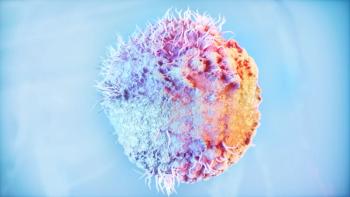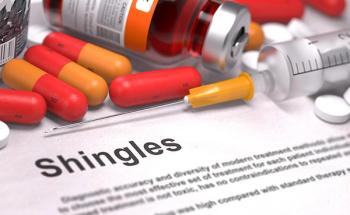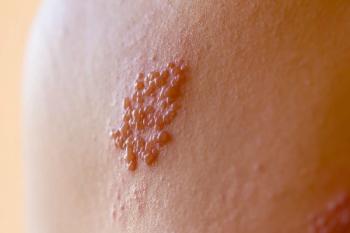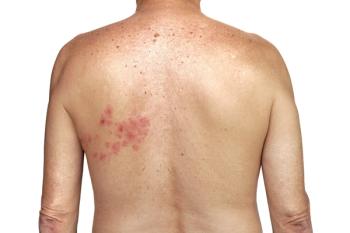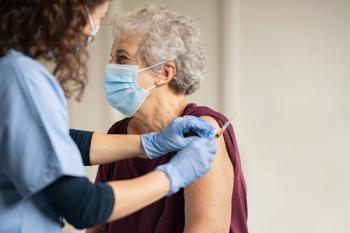
Treatment for Shingles Rash and Pain
Medications and lifestyle changes can provide relief.
Despite the availability of a highly effective
Antiviral medications should be started within 72 hours of the first shingles
Shingles typically lasts between 2 and 6 weeks; patients are usually confined to their home for the duration both for their own comfort and to prevent
Lukewarm baths infused with colloidal oatmeal or cornstarch can soothe the skin and reduce itchiness. Make sure to towel off completely to keep the affected area dry. Cool, moist compresses used several times throughout the day, and a paste of baking soda and cornstarch applied to the rash, are also effective. Unscented lotions can also be comforting. Those containing capsaicin, a natural ingredient, have an anti-inflammatory effect and reduce pain signals sent to the brain. Finally, calamine lotion applied after baths or showers is soothing and helps to dry out the lesions.
A weakened immune system worsens all illnesses, including shingles. A well-balanced diet helps shore it up and supports recovery. Foods high in vitamins A, B12, C, and E, as well as the amino acid lysine promote healing. Foods and beverages to avoid include those that are high in sugar and/or saturated fats, refined carbohydrates, and foods rich in arginine such as chocolate, gelatin, and nuts. These foods can weaken the immune system, potentially prolonging the virus and the damage it does.
Up to 20% of patients develop postherpetic neuralgia (PHN),2 the most common complication of shingles. PHN develops due to nerve fibers that have been damaged by the virus. This severe pain continues after the rash has healed and can last for months or years. Although there is no cure, there are ways to
The risk for developing
Currently, Shingrix is the only vaccine available to immunize against the
References
Shingles (herpes zoster). CDC. Updated October 5, 2020. Accessed December 21, 2020. Shingleshttps://www.cdc.gov/shingles/index.html - Shingles burden and trends. CDC. Updated August 14, 2019. Accessed December 21, 2021.
https://www.cdc.gov/shingles/surveillance.html - What everyone should know about the shingles vaccine (Shingrix). CDC. Updated January 25, 2018. Accessed December 21, 2021.
https://www.cdc.gov/vaccines/vpd/shingles/public/shingrix/index.html - US Centers for Disease Control and Prevention’s Advisory Committee on Immunization Practices votes unanimously to recommend Shingrix for immunocompromised adults aged 19 and up. News release. GSK. October 20, 2021. Accessed December 21, 2021.
https://www.gsk.com/en-gb/media/press-releases/votes-unanimously-to-recommend-shingrix-for-immunocompromised-adults-aged-19-and-up/
Newsletter
Pharmacy practice is always changing. Stay ahead of the curve with the Drug Topics newsletter and get the latest drug information, industry trends, and patient care tips.

